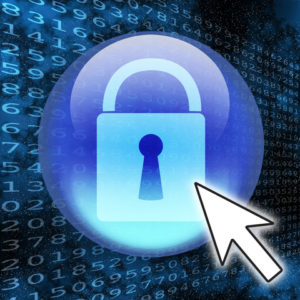Dust off your digital devices inside and out
Hackers know small companies are more vulnerable to data breaches due to limited resources. Cybersecurity should always be a high priority. But when a company’s IT staff consists of maybe 1-2 people who are provided limited budgets and are constantly solving other tech problems, the focus on security suffers. And hackers aren’t the only problem. One significantly overlooked part of the security process “cleaning” the IT infrastructure.
 IT staff being and small business owners must keep on top of:
IT staff being and small business owners must keep on top of:
- Networked systems
- PC and mobile hardware
- Multiple device software
- Local and cloud data
The best way to manage the “cleaning” process is to keep a checklist and break the workload down into small bites. Complete the following tasks to clean up your business’s digital life and add layers of protection:
- Rule #1: Automatically back up your data before, after and always. No matter what you are doing to your devices, make sure they are backed up.
- Use automatically updated security tools including anti-virus, anti-spyware, and firewall software.
- Use a virtual private network for public Wi-Fi activity. Check to see if the VPN auto-updates.
- Take an inventory of your e-mail files. Depending on the nature of a business, it may be prudent to keep everything backed up for years. In other cases, consider deleting useless messages. Create folders for messages pertaining to certain topics. Delete old folders, etc.
- Go through all of your devices’ programs and uninstall the ones you’ll never use.
- Carefully sift through all of your files and get rid of useless ones.
- Separate out media so that there are files specifically for images, video, docs, etc.
- Integrate desktop icons that have a commonality. For instance you may have several related to a certain product or service you provide. Create a main folder and put all of these in it. Icon clutter may slow boot-up time and makes things look and feel, well, cluttered.
- Take a look at all your passwords. Replace the crackable ones with long and strong ones. An easily crackable password: contains real words or proper names; has keyboard sequences; has a limited variety of characters. If you have a ton of passwords, use a password manager.
- Have multiple backups for your data including on premise and cloud storage.
- Defragment your hard drive.
- Reinstall your operating system. Of course, first make sure all your data is backed up beforehand.
- Operating systems pick up temporary files over time, slowing the computer and making it vulnerable. The free CCleaner tool will clean up your system’s registry.
- Install program updates. Your OS should automatically do this, but check just to be safe.
- Review the privacy settings of social media accounts to make sure you’re not sharing information with more people than you’d like.
- Make sure your business is protected by a security alarm system that includes video surveillance. Hackers get the spotlight, but we can’t forget about the common burglar.
The prevention tactics above apply to businesses and really, everyone. Be sure to train your employees on proactive security and inform them about tricks that cyber thieves use. For more information visit: http://www.dhs.gov/national-cyber-security-awareness-month. If you’re looking for a secure backup solution, check out Carbonite. Sign up before the end of October and receive two free bonus months when you enter code “CYBERAWARE” at checkout.
#1 Best Selling Author Robert Siciliano CSP, CEO of IDTheftSecurity.com is a United States Coast Guard Auxiliary Flotilla Staff Officer of the U.S. Department of Homeland Security whose motto is Semper Paratus (Always Ready). He is a four time Boston Marathoner, Private Investigator and is fiercely committed to informing, educating, and empowering people so they can be protected from violence and crime in the physical and virtual worlds. As a Certified Speaking Professional his “tell it like it is” style is sought after by major media outlets, executives in the C-Suite of leading corporations, meeting planners, and community leaders. Disclosures.


























